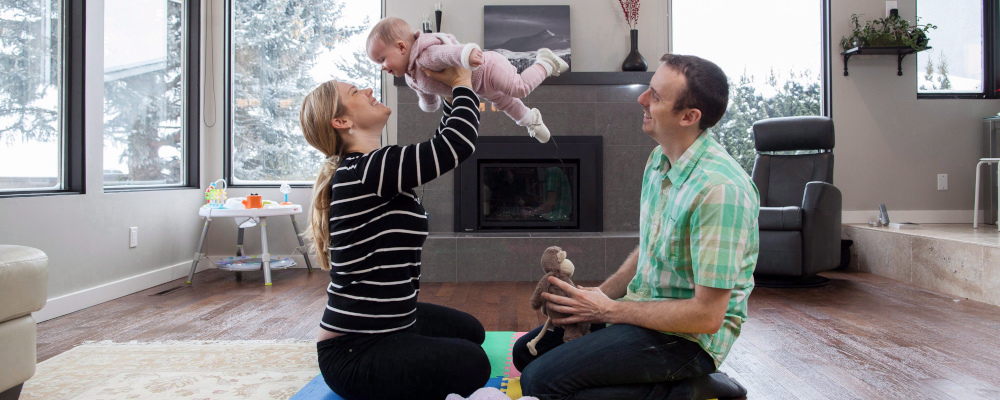“Disrespectful.” “Unappreciative.” “Alienating.” “Unfair.” “Inflammatory.” “Sensationalistic.” “Ageist.”
If you’re a baby boomer, these are likely some of the thoughts you might have when being accused of waging a war on young Canadians. We know the late 1980s were difficult. We know you’ve navigated personal hardship, and may still be. We know you worked hard to give your children a better future. You’ve contributed enormously to building Canada as one of the most socially free countries on Earth.
The housing crisis, the impacts of climate change, enormous public and private debt, an evident decline in state capacity, and an increasingly stagnant uncompetitive economy—we know you didn’t vote for this, and these problems are not only your fault. Surely young people could afford housing if they just quit the lattes and avocado toast and traded social media for hard work. Their anger must be overblown.
The results of the latest World Happiness Report, examined by The Hub this week, should be a wake-up call. Ranking 6th globally in 2015, Canada has now slid down the happiness rankings to 15th in 2023. That doesn’t sound too bad, right? However, digging a bit further into the details uncovers a shocking generational divide; the largest of all countries surveyed. Canadians over 60 ranked as the 8th happiest globally. But Canadians under 30? 58th. Young Canadians are not okay, and why would they be?
To come of age in Canada over recent decades means having borne witness to a steady erosion of your future prospects, with society placing anxiety-inducing burdens that the dominant generation has voted to make your problem. The ugly reality is that younger Canadians are living in the aftermath of a transformation that has eroded the social contract between generations. We have seen nearly every system and institution become a pyramid scheme with the young at the bottom.

Life delayed, future denied
Housing starkly illustrates the generational divide in Canada, symbolizing the pinnacle of broader systemic issues that have forced young Canadians to unwillingly delay adult and domestic life. Take education, for instance; Canadian boomers have overseen an era of practically mandatory credential inflation, requiring young people to jump through circus hoops and pursue years of additional education and apprenticeship to have just the hope of securing middle-class jobs that were once possible with only a chance and a bit of on the job training.
After graduating, young workers face the daunting task of repaying an average of $28,000 in student debt with salaries that have fallen nearly 10 percent when adjusted for inflation since 2010, lagging behind living costs for years. Meanwhile, the dream of homeownership has become a distant reality. In Ontario, for example, saving for a downpayment now demands 22 years of saving on an average income, a stark increase from the mere six years required two decades ago.
The combined impact of prolonged education, stagnant entry-level wages, and soaring housing costs has significantly delayed financial and familial stability for young Canadians in comparison to their parents, often beyond prime reproductive years. This delay has directly contributed to Canada’s fertility rate (the average number of children born to a woman in her lifetime) plunging from 1.7 in 2008 to 1.33 in 2022; with the sharp falls unsurprisingly in British Columbia and Ontario. Young Canadian women report having 0.5 fewer children than they’d like. Devastatingly, many young Canadians have given up entirely on the possibility of family life, unable to align financial realities with their desires, even with daycare for supposedly $10 per day.
In response to the prospect of demographic decline, Canadian policymakers have leaned heavily on increased immigration to sustain population growth. This approach, beneficial in moderation but having dramatically departed from it in recent years, has added to this list of challenges for young Canadians. It has driven up housing costs in a supply-scarce environment (abetted by infamous boomer NIMBYism), increased competition for entry-level jobs, contributed to a rising national unemployment burden, and fostered an economic environment that has empowered many employers to forgo investing in their workers. According to the National Bank of Canada, in immigration, this country has engineered a “population trap.”
A stagnant economy with mountains of debt
Meanwhile, the competitiveness of the Canadian economy has been steadily eroded over decades through a rise in the power of industry associations and lobbying groups mandated to sway politics and regulatory landscapes. The signs of mounting regulatory capture can be seen in the growth of bureaucratic cottage industries that have buried real economic activity in process and paperwork. This environment has fortified existing monopolies and stifled competition, disproportionately benefiting an older generation ensconced in secure, protected sectors. Consequently, young Canadians are left facing a bleak economic landscape, deprived of meaningful employment opportunities and the dynamism needed for robust economic growth, when their lives could benefit from it most. Coupled with the now-needed diversion of their disposable income and capital into housing rather than productive ventures, Canada has become trapped in a zero-sum economic state that fails its young.
The next generation is shouldering a daunting fiscal legacy and grappling with a public gross debt that has soared to over 110 percent of GDP, which puts Canada among the top third of OECD nations. This burden is magnified by household debt levels that have rocketed from below 100 percent of GDP in 1995 to over 175 percent in 2023, driven predominantly by Canadians aged 35-44 who face a staggering debt-to-income ratio that has increased over 100 percent since 1999, reaching 250 percent in 2023.
This debt explosion, driven by wealth transfers from aspirational young homeowners to older “House Rich” Canadians, along with reckless government expenditure, is set to burden future generations with a lifetime of unreasonable interest payments and higher taxes. Annually, over $80 billion is drained just to cover the interest on government debt, an amount that mirrors the total expenditure on nationwide K-12 public education, and more than $2,000 for each and every Canadian taxpayer.
This rise in unproductive debt has been driven by the boomers’ free-spending expert consensus that advocated for leveraging public debt for productivity-enhancing capital investments. This has given wasteful politicians permission to erode Canada’s fiscal capacity by squandering it on current spending while failing to advance long-term economic prospects.

Burdened and obligated
This loss of fiscal capacity matters, because the next generation will inherit expensive obligations without much room to maneuver. Due to aging demographics, spending on retirement benefits is projected to surge by 40 percent to $96.3 billion in 2028 from $69 billion in 2023. This means nearly half of all new federal spending projected in last year’s budget, from 2023 to 2028, will be allocated to elderly benefits. This will be complemented by an upswell in demand for our already overburdened public health-care system.
Adding to our obligations, Canada faces an infrastructure deficit that could be as high as $1 trillion, underscoring the urgent need for state institutions that prioritize efficiency and value. Yet, instead, we witness a disheartening spectacle of waste, inefficiency, and soft corruption in public procurement that few dare to admit. A glaring example is Toronto’s Ontario Line subway, costing over $1 billion per kilometer, nearly five times (!) the expense of similar projects in cities like Paris, France.
Finally, the specter of climate change, unequivocally acknowledged by the scientific community since the 1980s, represented an urgent and ignored call to action. The repercussions for the next generation are far-reaching, making the fledgling carbon tax earning the ire of Canadians now look like nickels and dimes. Exorbitant costs for mitigation, spiraling insurance premiums, food inflation driven by supply shocks, and a permanent reduction in global economic growth await us in the future.
In a recent Globe and Mail op-ed, “Stop blaming boomers and other retirees for the housing shortage,” senior business columnist Rita Trichur chalks up the downsizing debate to “peak millennial entitlement.” But in the “entitlement Olympics,” young Canadians aren’t even close to taking home the gold, or even the bronze.
The real story has nothing to do with downsizing—it’s about how Boomers have set policy traps that have systematically kneecapped future generations’ prospects. In their wake, boomers have now left behind a country of systems littered with economic landmines and lower living standards. To suggest millennials’ expectations are anywhere near the entitlement boomers have exercised is to ignore a battlefield shaped by the older generation’s self-interest.
Political leaders are finally beginning to acknowledge the deep-seated anger and despair that have rightfully festered among the young under their watch. Prompted by sour polls or perhaps a belated wave of concern, Justin Trudeau’s 2024 federal budget will be focused on the young Canadians they’ve largely neglected since taking office nine years ago. They’ve spent the pre-budget period announcing a substantial if imperfect housing plan, yet its success hangs precariously on the willingness of provincial leaders like Ontario’s Doug Ford, who has shown gatekeeper-like resistance to demands for critical reforms.
Beyond the realm of housing, Canada continues to face a broader crisis: a lack of leadership ready to address the erosion of our institutions and a decline in state capacity, despite an ever-bloating public sector. The upcoming federal budget, likely laden with unproductive deficit spending and increased taxes, will fall short of the systemic reforms needed. True change seems poised to rest on the shoulders of a new generation of leaders—at municipal, provincial, and federal levels—who are prepared to reconstruct a Canada that future generations will be prouder to inherit.
Recommended for You

Michael Kaumeyer: Polite decline: Canada’s aversion to being our best is holding us back

Howard Anglin: Lament for a Lament

‘A place where anybody, from anywhere, can do anything’: The Hub celebrates Canada Day

The state of Canada’s economy halfway through 2025




